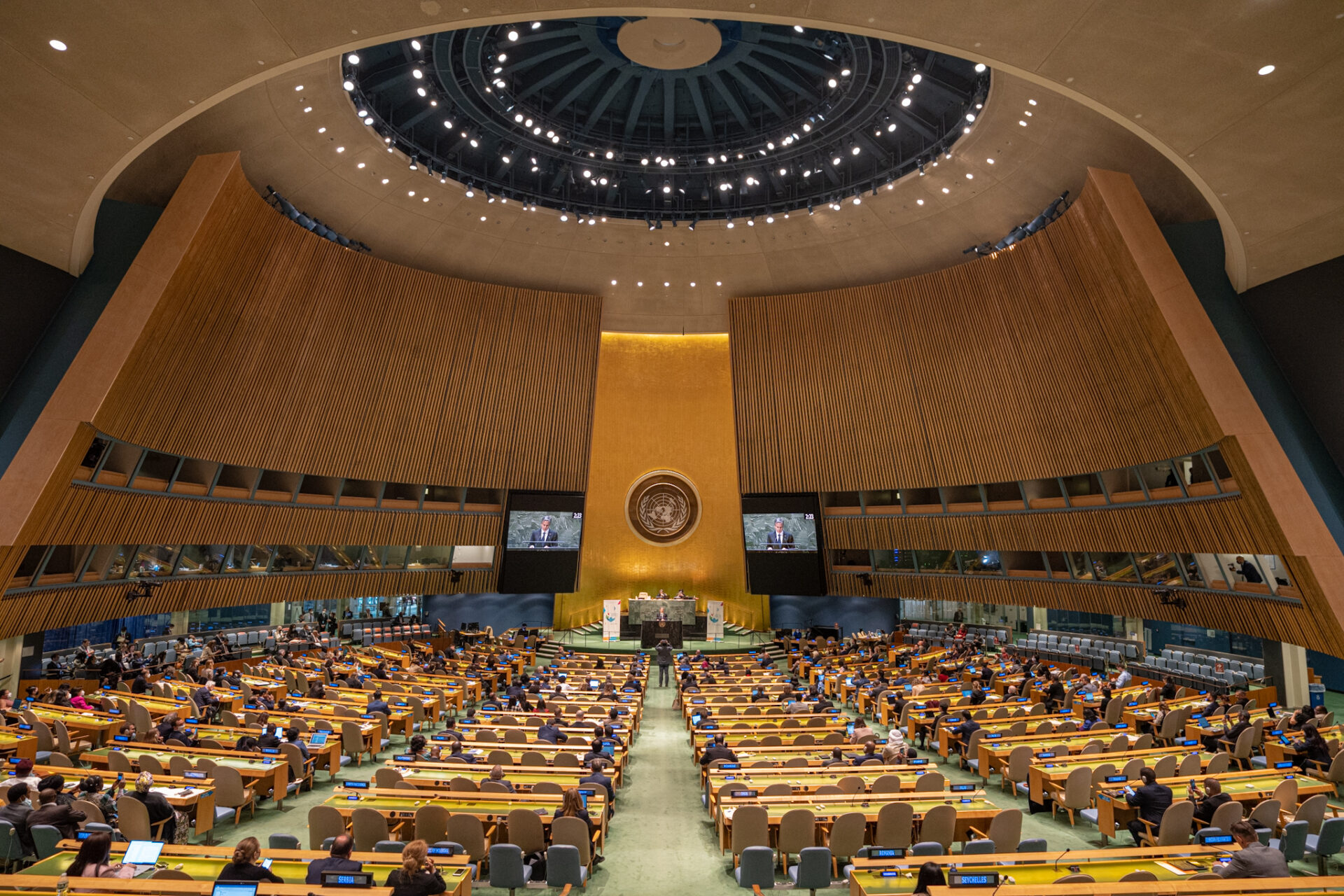In 2016, I was a candidate for the position of UN Secretary-General. At the time, there was a widespread belief that, after 70 years of the organization’s existence, it was high time for a woman to lead it. There were seven women candidates—diverse in background and trajectory, all highly qualified and serious contenders. In total, thirteen candidates ran—seven women and six men—and in the end, a man was chosen. Of course, António Guterres was a candidate with great merit, experience, and leadership qualities. The only thing he lacked was being a woman—which is precisely what many of us hoped the UN would embrace as a step forward in its commitment to gender equality.
After that moment, together with two other fellow candidates, Helen Clark and Irina Bokova, we founded GWL Voices, with the aim of highlighting how strategic, effective, and democratic it would be—and still is—to renew leadership within the system. Today, there are nearly 80 women leaders from the multilateral sphere who annually analyze gender representation in top leadership positions across the multilateral system, bringing to bear the weight of our extensive experience. In this article, I want to speak to something very specific: the next election of the UN Secretary-General, and our campaign “Madam Secretary-General.”
The UN was founded on the ideals of equality. Its Charter begins with “We the peoples,” not “We the men.” It explicitly states that “men and women have equal rights”—words shaped in part by visionary women from Latin America in 1945, such as Bertha Lutz, Minerva Bernardino, and Amalia de Castillo Ledón, who championed gender equality in the organization’s founding texts. Women were ready to lead the UN then, and they are ready now.
The need for transformative leadership is both urgent and evident—and that means opening the door to those who have historically been excluded. It means embracing a perspective that has been absent for far too long—eighty years, to be exact. Women are known for their ability to listen, build bridges, solve problems, and focus on impact. They safeguard institutions while driving change and manage resources efficiently. These are not abstract qualities; they are concrete skills that women apply daily in their homes, businesses, and governments—and it’s time to bring them to the global stage.
At a time when global challenges are taking on forms we never anticipated—and where the temptation to compete and fight over every space is growing—leadership with a fresh perspective is crucial. Leadership that, grounded in strong convictions, is capable of building on cooperation and advancing solutions that benefit the vast majority. And what could be more transformative for the United Nations than having a woman at the helm for the first time in its history? A female Secretary-General would ensure that the world’s population sees itself truly represented and would bring a leadership style the multilateral system urgently needs in an increasingly tense world.
So, why not? The question is not whether a woman can lead the UN, but how her leadership can drive real change. We’re not expecting one woman to fix an 80-year-old system overnight—this is not about finding a superheroine. But we do know that systemic change begins with different leadership. And that means breaking the cycle of always appointing the same types of leaders with the same perspectives.
Restoring legitimacy means aligning UN leadership with the values it claims to uphold: equality, representation, and justice. And that starts by finally opening the door for a woman to take the lead. So the real question should be: “Why not choose an excellent woman candidate who also reinforces the UN’s legitimacy by ending the exclusion of half of the world’s people?”
In 2026, the United Nations will have a new opportunity to break barriers and elect, for the first time in its history, a woman as Secretary-General. With a potential regional rotation that favors Latin America, several highly qualified women leaders from the region could take on the role. It would be an excellent way to bring to life the vision of those trailblazing women who helped shape the UN Charter.
Let’s make history. Let’s give the UN the leadership it has never had, but needs now more than ever. The moment is now.
This article is part of a collaboration between the Organization of Ibero-American States for Education, Science and Culture (OEI) and Latinoamérica21 to promote the platform Voices of Ibero-American Women. Learn more and join here.
*Machine translation, proofread by Ricardo Aceves.













